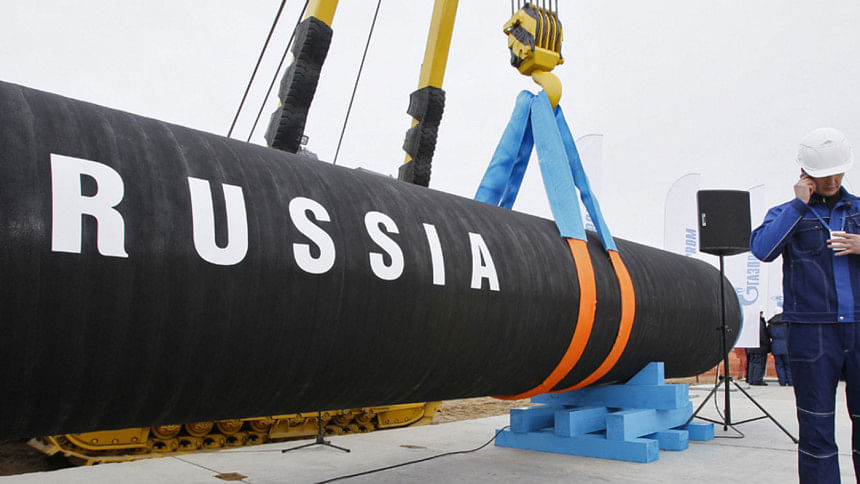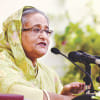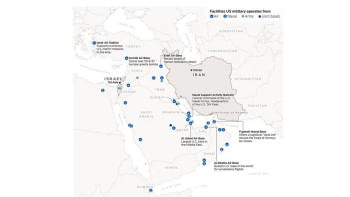Russia has options

From Turkey to the European Union (EU), the search for alternatives to Russian gas is on. The Syrian fiasco continues to fester and with the drowning of a Russian warplane by Ankara, no one can say for certain that peace will come anytime soon to the troubled land. Although on the surface, there is acrimony between the State of Israel and Turkey, they do have a common interest at heart, i.e. to break Russia's resurgence as a player in the Mid-East. Then of course there is the question of securing alternative energy sources, one that would neutralise Russia's energy diplomacy.
However, for any concrete joint venture between Ankara and Jerusalem to take place, to say explore the massive natural gas find Israel made offshore a few years ago, would require overcoming domestic opposition. That notwithstanding, there are massive hurdles to overcome before Israeli offshore gas lying at the bottom of the Mediterranean could be piped to Turkey and beyond. The question of planning, financing and actually building a pipeline is not in years but decades. There are also serious technical hurdles to be overcome, but what is clear is that some sort of rapprochement is in the offing between these two countries. And one should not forget that it is not only Turkey that would benefit from such extraction of gas; Egypt and Jordan are two Arab States that have full diplomatic relations with Israel, so to say, there is no demand for Israeli gas in the region is simply not true.
Whatever may be the outcome of these talks, it is quite certain that EU will be exploring all options to neutralise the Russian energy export option in the coming years. So where does that leave Russia? It is not inconceivable to see an EU free of Russian gas a decade down the line. What is clear of course is that Europe does not necessarily have to be the largest consumer of Russian energy exports. Indeed, going by international media reports, we understand that the Minister for Russian Far East Development Alexander Galushko made the following statement in March 2015: "there is a huge foreign market, closer than Moscow. The world's number one economy – China, number three – Japan, and the most dynamically growing economy – Indonesia." The Chinese connection is already there whereby it is expected that annual export by Russia to China will reach 100 billion cubic meters. Europe, on the other hand, consumed 146 billion cubic meters of Russian gas in 2014.
As we near the end of 2015, we find Russia having sealed a 30-year contract worth US$400 billion with China and infrastructure development in full swing to take Siberian gas to China. The emerging energy alliance between Russia and China goes beyond natural gas supply. Again, going by media reports, we understand that an agreement has been reached sometime October this year with Singapore's state-owned Pavilion Gas for the supply of liquefied natural gas. When we take into account reports that Russia is looking to clinch a deal with the Indonesian government for a series of high power, floating nuclear plants, it is easy to see that it is pivoting towards Asia, and in a very big way. Like the EU, Russia too is hunting for new markets except that it has already found some markets and in the process of going after new ones.
The prospect of exporting Russian nuclear technology to Asian economies in the ASEAN cannot be ruled out. It would be natural for say, Vietnam to explore that option. We do not know for certain if Thailand and Malaysia would be interested to join the growing number of Asian economies to explore Russian overtures in the energy sector, but it would work to their advantage to having a source closer to home to meet energy needs. Looking beyond ASEAN, we find Russia reaching out to other associations like the Eurasian Economic Union that consists of Central Asian countries – the former Soviet republics of Kazakhstan, Kyrgyztan, Armenia and Belarus.
One country to watch will of course be Japan. That Japan has introduced direct yen-ruble trade, which effectively decreases exchange rate fluctuations , points to a growing relationship between these two countries. It is interesting to note that Russia has taken steps to set up special economic zones on its Far East border and this step is attracting wider interest in the Asian region. Japan is not the only Asian superpower, after China that is looking into energy ventures with Russia; trade with South Korea is at an all-time high.
At the end of the day, as we take stock of the energy roulette being played between the West and Russia, it should not come as any surprise that Russia will look to the East to shore up its fortunes on the energy-export issue. A spin-off from all this economic activity would certainly be a growing Russian influence in the Asian region – which experts predict will drive the global economy in the coming decades.
The writer is Assistant Editor, The Daily Star.

 For all latest news, follow The Daily Star's Google News channel.
For all latest news, follow The Daily Star's Google News channel. 








Comments